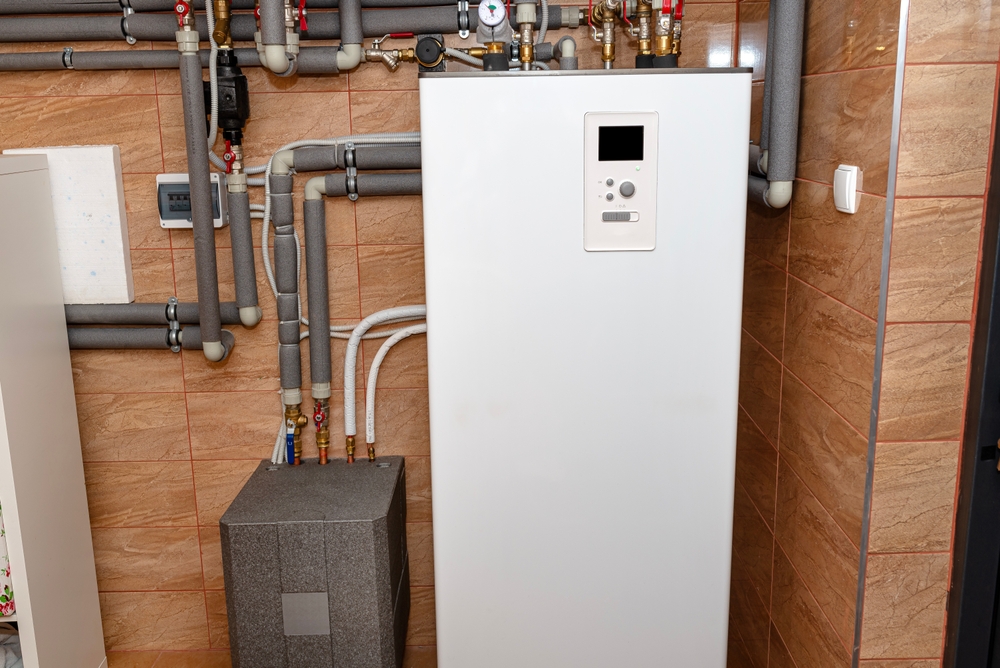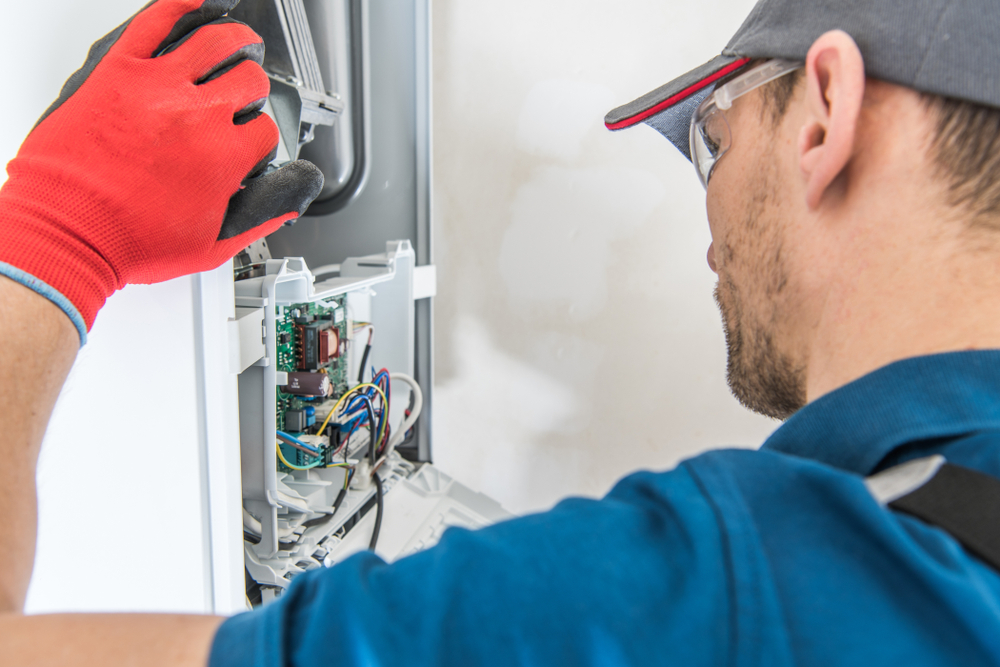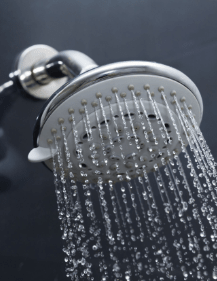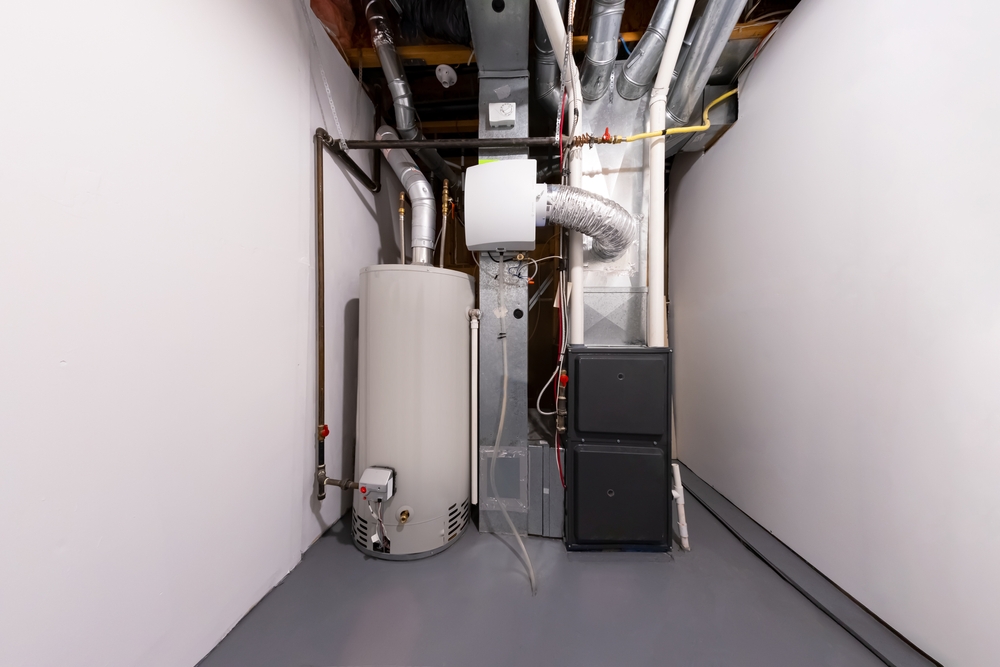Blog
Boiler vs. Furnace: Which Heating System Is Right for Your Home?

If you’ve ever had your heat cut in the middle of winter, you know from experience how important it is to have a reliable heating system installed in your home. In those moments, you don’t care what’s heating your home — you just need relief from the cold. However, taking the time to evaluate your options and choosing the right heating system for your home can provide benefits beyond warmth and comfort.
In the following article, we’ll review the two most popular types of heating systems — boiler vs. furnace — and compare their impact on indoor air quality, energy costs, and overall heating effectiveness. By the time you’re done reading this, we hope that you understand the difference between a boiler and a furnace and that you’ll be able to make an informed decision about which system is best for your home.
What Is a Boiler?
A boiler is a central heating system that uses water to distribute heat throughout your home. Unlike furnaces that heat air and circulate it through ductwork, boilers operate by heating water within a vessel using various fuel sources such as gas, oil, or electricity. They then distribute this heat through a network of pipes to radiators or radiant floor systems.
Types of Boilers
- Steam boilers: With the help of electrical ignition, water is heated until it turns into steam (about 212°F). The steam then travels from the boiler into a network of pipes and radiators, distributing heat throughout your home.
- Hot water boilers: Using oil or gas fuel, energy is produced to heat water in a vessel. The hot water is then circulated through radiators or radiant floor systems.
- Gas boilers: Natural gas or propane is fed into a sealed chamber where it is combusted to create heat. This heat is then absorbed by a water-filled pipe and transferred throughout your home with the help of radiators.
- Oil boilers: Oil burners work the same way as gas boilers. Instead of relying on natural gas or propane as the fuel source, they utilize oil.
Advantages of a Boiler
- Energy efficiency: Boilers use less energy than furnaces because water transfers heat more effectively than air.
- Longevity: With fewer moving parts, boilers operate quietly and can last up to 30 years, outlasting most other heating systems.
- Even heat distribution: Radiant heat from boilers spreads more evenly through a space, reducing cold spots and heating rooms consistently.
- Improved air quality: Unlike forced-air systems, boilers don't circulate dust or allergens through the air.
Disadvantages of a Boiler
- Higher initial cost: Boilers typically have a higher upfront installation cost compared to furnaces.
- No built-in air conditioning: Unlike forced-air systems, boilers can't be easily integrated with central air conditioning.
- Slower heating: While radiant heat is more even, it may take longer to initially heat a cold room compared to forced-air systems.
- Risk of leaks: Water-based systems can potentially leak, causing water damage if not installed properly.
What Is a Furnace?
Sometimes referred to as forced air heating systems, furnaces burn natural gas, oil, electricity, or propane to heat air. This warm air is then distributed throughout your home via air ducts. Furnaces are typically installed in closets, basements, or attics, making them inconspicuous and, therefore, the most commonly used heating system in residential properties.
Types of Furnaces
- Natural Gas: Gas furnaces are the most common types of furnaces found in homes. They’re connected to municipal gas lines which feed the natural gas along burners to create combustion (heat energy). Fans then circulate this heated air into your ductwork where it is distributed throughout the living spaces in your home.
- Electric: Electric furnaces employ electric heating elements to warm the air. They are usually smaller and less expensive than other types of furnaces and serve as a suitable option for homes without gas lines.
- Oil: Similar to gas furnaces, oil systems use oil as the fuel source and are often used in colder regions without access to natural gas.
Pros of Using a Furnace
- Lower upfront cost: Furnaces generally come with lower initial installation costs compared to boilers.
- Reliable heating: Furnaces warm homes faster than boilers and have more responsive temperature controls, even during the harshest winters.
- Less maintenance: Furnaces require less maintenance than other heating systems like heat pumps. They are also easier to install, especially in homes with existing ductwork.
Cons of Using a Furnace
- Higher operating costs: Depending on the fuel source, furnaces can have lower energy efficiency than boilers and are often more expensive to run.
- Fire and explosion risk: Gas furnaces carry a risk of fires, explosions, and carbon monoxide poisoning if not properly maintained.
- Uneven heat distribution: Furnaces can produce hot and cold spots in a home due to the way air circulates — not to mention the blower and ducts generate excess noise.
- Poor air quality: Because of the forced air, furnaces can circulate dust, allergens, and other pollutants through the air.
Key Differences Between Boilers and Furnaces
Heating Method
Boilers: Radiant heating — fuel sources include natural gas, oil, and electricity
Furnaces: Forced air heating — fuel sources include natural gas, propane, oil, and electricity
Energy Efficiency
Boilers: Ratings of up to 95% Annual Fuel Utilization Efficiency
Furnaces: Ratings of up to 98.5% Annual Fuel Utilization Efficiency
Installation, Maintenance, and Cost
Boilers: While typically higher in upfront installation costs, boilers have fewer moving parts than furnaces and are relatively easy to maintain over time
Furnaces: While easier to install, furnaces have lower upfront costs and are also relatively easy to maintain over time
Impact on Indoor Air Quality
Boilers: Little to no impact on indoor air quality because they do not circulate airborne pollutants
Furnaces: With forced air acting as a mechanism, furnaces can circulate dust, allergens, and other pollutants through the air in your living spaces
Which Heating System is Right for You?
Factors to Consider
The best heating option for you depends on your home size, climate, existing infrastructure, budget, and personal preferences.
Scenarios Where a Boiler is Best
Boilers are ideal for homes with radiant heating systems or those prioritizing energy efficiency and air quality. They’re also more practical in colder climates since they heat more consistently.
Scenarios Where a Furnace is Best
Furnaces are ideal for homes in need of quick heating or those with existing ductwork. Because they can be installed in closets or crawl spaces, they also take up less space and are better suited for smaller homes.
Takeaways
While furnaces and boilers have their share of drawbacks and benefits, they both remain popular and effective heating options for most residential properties. Homeowners should carefully weigh the pros and cons outlined in this article to determine the best system for their heating needs.
At T. Webber, we encourage anyone debating the difference between a boiler and a furnace to consult with an HVAC professional. Boiler installation and furnace replacement are two of our specialties, so we can provide expert guidance while you evaluate this important, long-term decision.





